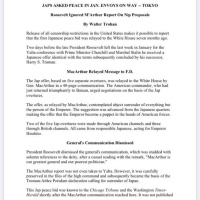When Japanese people include nuances that avoid definite statements in negotiations, it is because they are considering the other party's indignation, not because they are weak-kneed and avoid linear conclusions.
Japanese people should know that this kind of culture remains as a spiritual legacy in the Japanese mind.
Many Japanese people should have realized that this is a product of the wisdom of their ancestors who exchanged life and death in words. Of course, we can discard our such mental tendencies remains for the sake of a modern lifestyle, but why not? This is something that the Japanese need to deeply understand.
Logic, an individual's unique thoughts, is not limited to the individual. Emotion is unconsciously connected to others, we unconsciously think so. That's why the spiritual Japanese simply remain silent when there are no appropriate words for the occasion.
We unconsciously believe that the thoughts we put into words will last even if the physical individual is gone. Simply put, the logical dimension is higher than ontology.
The study of knowledge, the study of emotion, and the study of the will are all dangerous paths that eventually lead to death through the pros and cons of truth, beauty, and goodness. Such a one-dimensional ontology is a very dangerous thought. While the Japanese have imported Western ontology (including Christianity), at the core they have always been generative. In particular, the Shobogenzo's interpretation of the auspiciousness of birds, sky, and water is based on a generative structure that encompasses ontology.

























